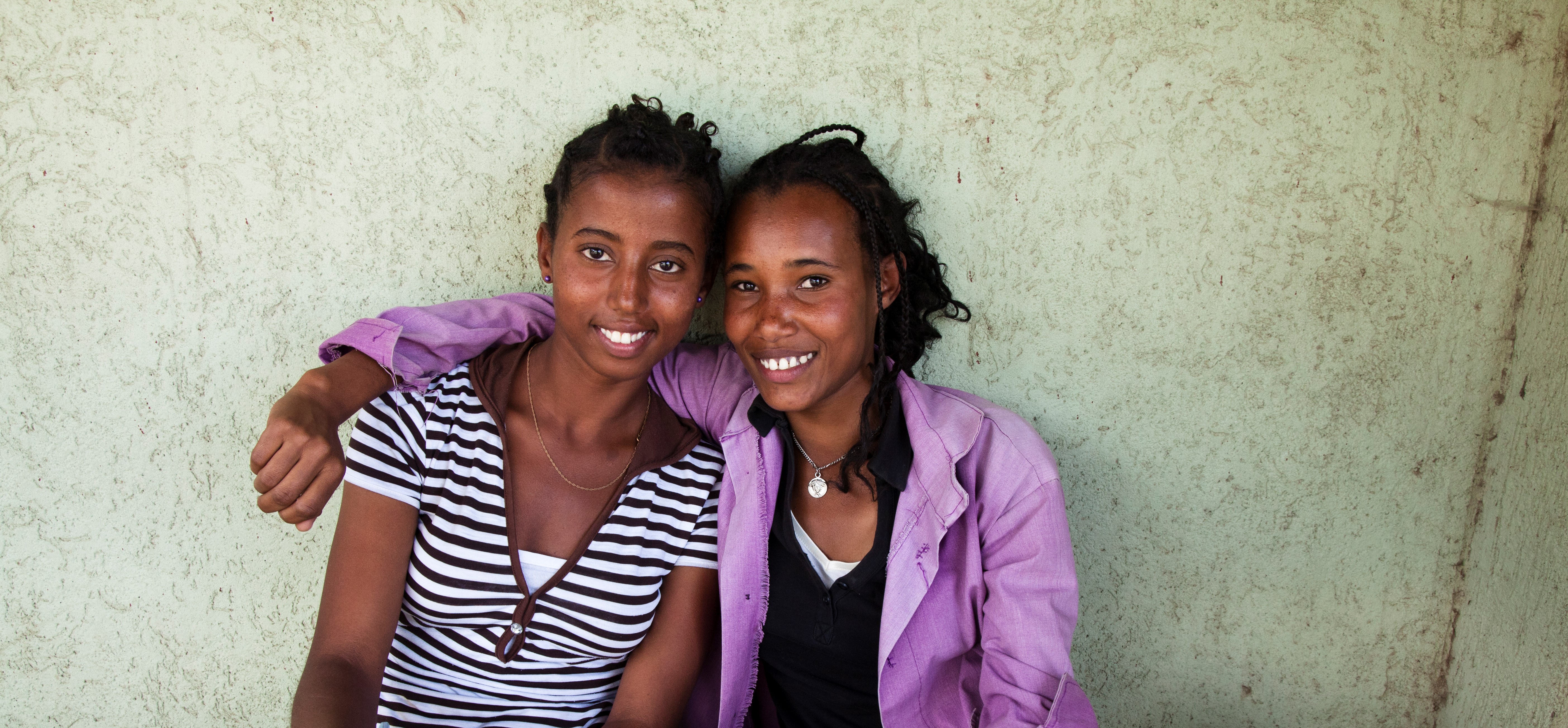
Project Prime and Partners
YouthPower Learning managed by Making Cents International (Prime)
International Center for Research on Women (Partner)
Khulisa Management Services (Partner)
Key Researchers
Zeru Fantaw Desta, Khulisa Management Services
Anne Bitga, Making Cents International
Jack Boyson, Making Cents International
Publication Date
January 2018
Project Goals
USAID/Ethiopia commissioned YouthPower Learning to conduct a CSYA to better understand the status and aspirations of Ethiopian youth aged 15-29 in their journey from adolescence to adulthood—a transition that includes starting a productive working life, developing healthy lifestyles, and exercising citizenship. YouthPower Learning applied a PYD lens to the CSYA. The primary aim of the CSYA was to support USAID/Ethiopia with:
1. Identifying the challenges and unmet needs Ethiopian youth encounter in making this life transition;
2. Mapping institutional efforts by the GOE and donors to address these needs;
3. Identifying evidence-based approaches to current youth development programming; and
4. Providing strategic guidance in the design and development of future programming that will impact the positive development of Ethiopian youth.
Key Findings
The assessment identified root causes of dissatisfaction of youth, which cut across all four domains (assets, agency, contribution and enabling environment) of the PYD framework. Youth highlighted the lack of opportunities to build skills and to contribute to decision-making processes, while emphasizing that the enabling environment does not allow them to pursue quality education nor obtain decent employment. Specifically, the top three root causes identified by youth include:
- Lack of employment opportunities. Almost two-thirds of study participants were unemployed at the time of research and noted that their lack of jobs severely limited their ability to achieve their life goals.
- Irrelevant education system. Study participants noted that the current education system in Ethiopia is of poor quality and misaligned from the interests of young people, and thus does not equip youth with skills to establish a livelihood.”
- Social, economic, and political marginalization. Study participants said that despite scores of government-affiliated youth associations across Ethiopia, real opportunities for youth contribution and leadership in the communities are sharply limited. Furthermore, Ethiopia’s ethnic federalist system, in which ethnicity is closely linked with political power, discriminates against other ethnicities in granting access to government services. As a result, youth feel disenfranchised and are more predisposed to engage in increasingly violent movements against the government.
This Situational Analysis also identifies promising policies, structures, programs, and partnerships that address Ethiopian youth’s root causes of dissatisfaction and align with the PYD approach. These promising policies, structures, programs, and partnerships include:
- Promising policy related to USAID/Ethiopia’s funding for the Pastoralists Areas Resilience Improvement through Market Expansion (PRIME) program supporting vulnerable households (including youth), to allow for a flexible and responsive implementation approach.
- Promising structures that build an enabling environment for PYD interventions include the UK Department of International Development’s (DFID) youth advisory panel; USAID/Ethiopia’s multi-technical office funding scheme for youth programming and its working group on youth; and the Youth Network for Sustainable Development (YNSD), consisting of 160 youth-led organizations promoting youth leadership and civic engagement nationwide.
- Promising programs that help Ethiopian young people gain the assets they need to become productive adults include those such as the Helvetas’ Skills and Knowledge for Youth program that provides market-driven information and communications technology (ICT), gender equity and young women’s empowerment, life and employability, livelihood, and entrepreneurship skills training for young people; USAID’s POTENTIAL program, with its holistic and comprehensive youth development approach targeting vulnerable youth in six regions of Ethiopia; and World Vision’s Youth Ready Program, which supports functionally illiterate young people to develop and enact a livelihood plan.
- Promising partnerships that create opportunities for more coordinated PYD-aligned youth interventions include the Civil Society Support Program (CSSP) Partnership between the British Council, the Canadian International Development Agency, DFID, Embassy of Sweden, Embassy of the Netherlands, Irish Aid, and Royal Norwegian Embassy that funds a wide range of Ethiopian civil society organizations (CSOs), including youth-led community-based organizations and associations, and the partnership between the Ministry of Youth and Sports (MOYS) Alamata Office and Professional Alliance for Development in Ethiopia (PADet) Alamata Office. The latter partnership illustrates how a GOE agency and community-based youth development organization can work together in close coordination to help Ethiopian youth attain employability, workforce readiness, and entrepreneurship skills they need or to create jobs for this sector.
Document Details
Title: USAID/Ethiopia Cross-Sectoral Youth Assessment Report
Sponsoring Organization: USAID, Mission to Ethiopia
Language: English
Download the document.
Share this document.
Document Details
Sponsoring Organization: USAID, Mission to Ethiopia
Language: English
Download the document.
Share this document.

